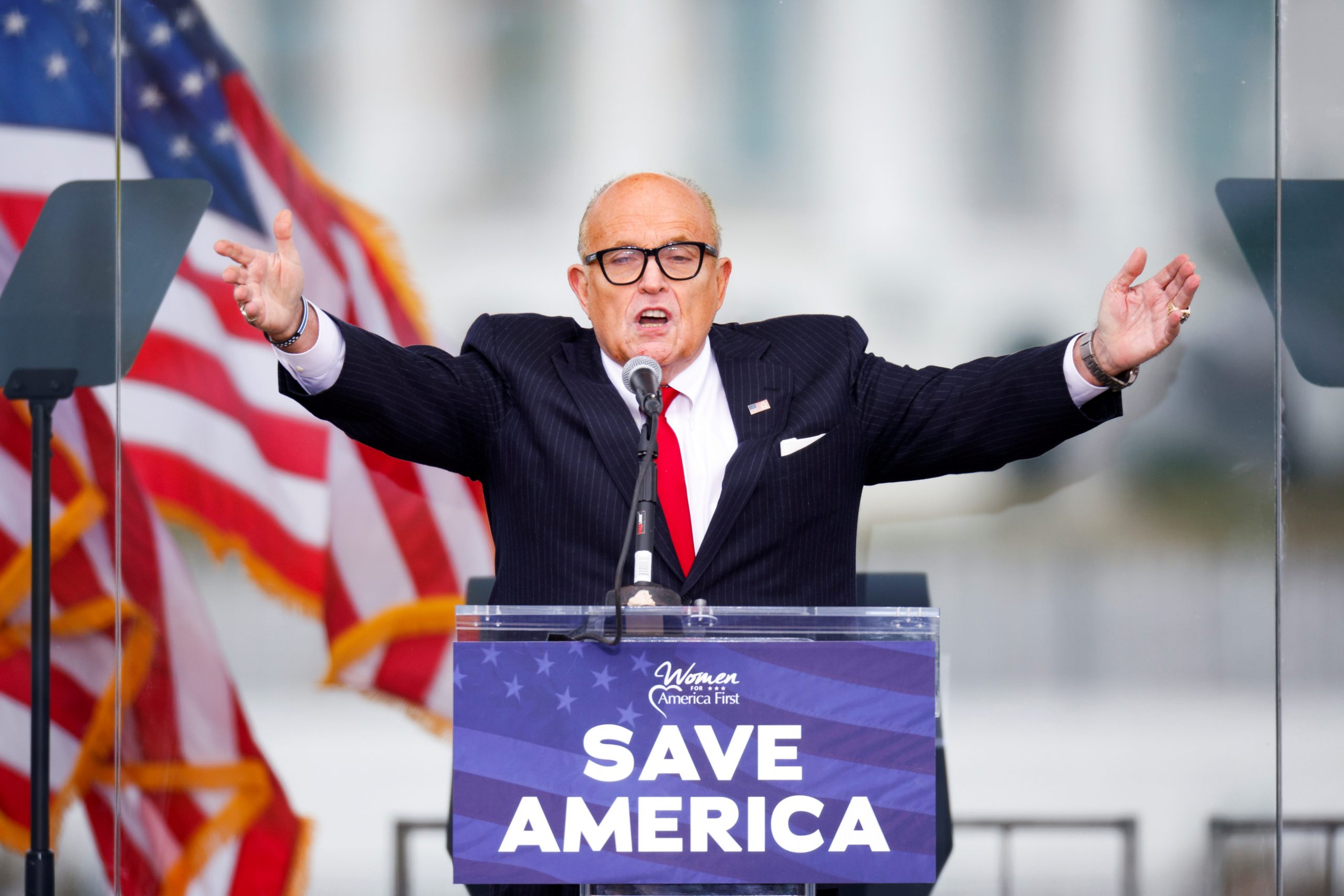A group of prominent attorneys on Thursday asked New York’s judiciary to suspend the law license of former President Donald Trump’s lawyer Rudy Giuliani for making false claims in post-election lawsuits and for urging Trump’s supporters to engage in “trial by combat” shortly before they stormed the U.S. Capitol.
The letter, spearheaded by the organization Lawyers Defending American Democracy, called for immediate suspension of the license pending an investigation of Giuliani, who served as a federal prosecutor and a New York City mayor before Trump hired him as to be his personal attorney.
“This complaint is about law, not politics,” said the letter to the attorney grievance committee of the Appellate Division of the Supreme Court of the State of New York, First Judicial Department. It was signed by more than 40 lawyers.
Giuliani did not immediately respond to requests for comment.
Attorneys not affiliated with the group, including a lawyer who defends other lawyers from ethics complaints, said the letter could have serious consequences for Giuliani.
The grievance committee, part of New York state’s judiciary, has the power to censure and suspend lawyers and revoke their law licenses.
Giuliani led the legal team that tried to overturn Trump’s election defeat but failed to produce any evidence of widespread fraud. The team lost dozens of court cases in battleground states and at the U.S. Supreme Court, and President Joe Biden’s victory was confirmed.
Criticisms of Giuliani escalated after the deadly Jan. 6 attack on the Capitol by a pro-Trump mob. Shortly before, Trump told supporters to “fight like hell,” and Giuliani urged “trial by combat.”
The letter to the disciplinary body cited Giuliani’s false statements in court and in public about widespread voter fraud, as well as his call for “trial by combat.”
Attorney suspensions and disbarments are very unusual, said Brian Faughnan, a lawyer in Tennessee who defends other lawyers in ethics matters.
But the letter lays out strong evidence against Giuliani, and he may face a public reprimand, said Faughnan.
“If I got a complaint like that on behalf of a client, I would be worried,” he said.
Attorney disciplinary bodies typically do not publicly announce an investigation, but will reveal any punishments they hand down, Faughnan said.
(This story refiles to add missing word “that” in 12th paragraph)
(Reporting by Jan Wolfe in Boston and Caroline Spiezio in New York; Editing by Noeleen Walder and David Gregorio)

























 Continue with Google
Continue with Google